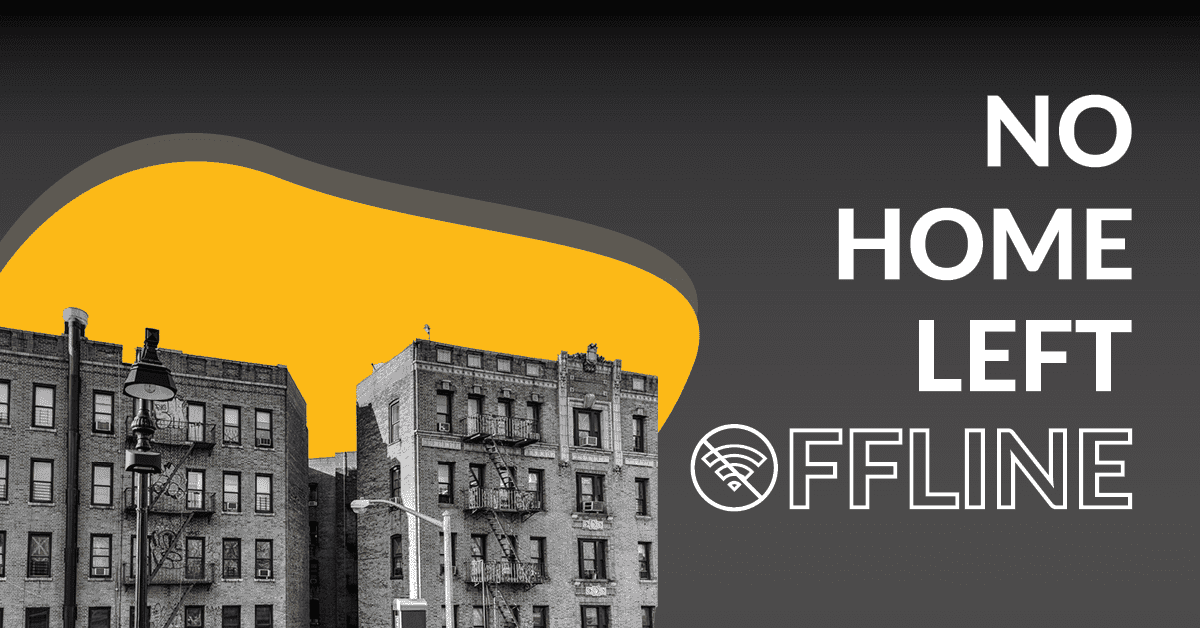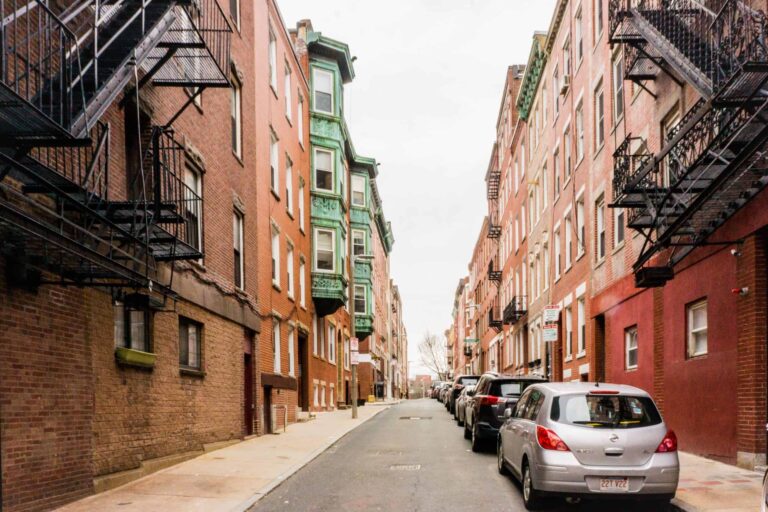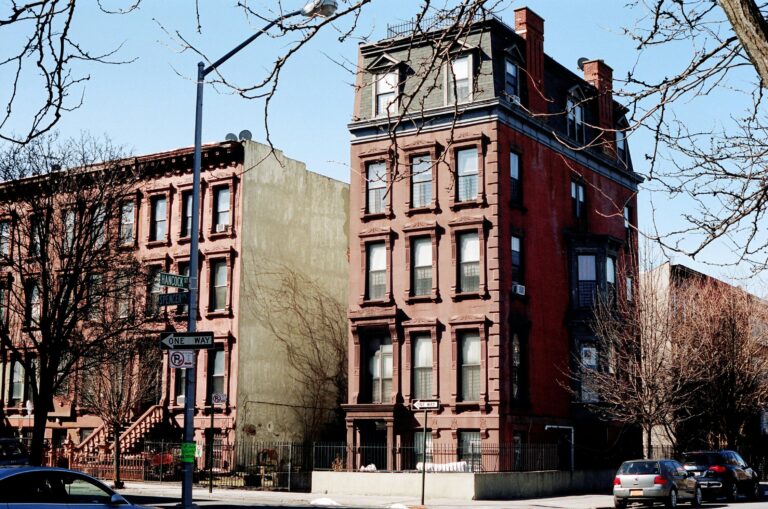The Infrastructure Investment and Jobs Act (IIJA) allocated over $45 billion to states for broadband deployment through the Broadband Equity, Access, and Deployment (BEAD) and Digital Equity Act (DEA) programs.
This historic investment presents an opportunity to close the digital divide across the country, but we must make sure that the 20-25% of unconnected households living in multi-family and public housing, primarily in urban and suburban communities, are not left offline.
Earlier this year, 27 national organizations joined EducationSuperHighway to advocate on behalf of the millions of unconnected households living in multi-family housing. Thanks to these efforts, the BEAD program rules allow states to prioritize connecting multi-family and public housing locations in high-poverty areas and multi-family dwellings that are substantially unserved.
Building on that advocacy, EducationSuperHighway has established the No Home Left Offline Coalition. In the coming months, the coalition will be hard at work advocating to states for the inclusion and prioritization of broadband solutions that efficiently connect unconnected households living in multi-family and public housing in their state BEAD plans. While the coalition’s near-term priorities center around ensuring states include multi-family and public housing in their network deployment plans, the coalition will also advocate for other policy solutions to ensure universal access to reliable, affordable broadband, and support policies that provide access to devices and learning.
The No Home Left Offline Coalition will
- advocate to state policymakers on the need and urgency behind connecting those living in multi-family and public housing,
- educate policymakers and their respective constituencies about the opportunity, and
- encourage community advocacy to take advantage of this historic opportunity to close the digital divide.
EducationSuperHighway is joined in this work by the following 33 organizations in our mission to ensure that no home is left offline:
- AASA, The School Superintendents Association
- African American Mayors Association
- All4Ed
- American Library Association
- American Psychological Association
- Common Sense
- Council for Affordable and Rural Housing
- IDEA Public Schools
- Institute for Educational Leadership
- Institute for Real Estate Management
- Leading Age
- Local Initiative Support Corporation (LISC)
- Manufactured Housing Institute
- Multicultural Media Telecommunications Council (MMTC)
- National Apartment Association
- National Association for Family, School, and Community Engagement
- National Association of Counties (NACO)
- National Association of Elementary School Principals
- National Association of Financially Impacted Schools (NAFIS)
- National Association of Housing Cooperatives
- National Catholic Educational Association
- National Council of Teachers of English
- National League of Cities
- National Leased Housing Association
- National Multifamily Housing Council
- National Urban League (NUL)
- Oakland Undivided
- Public Knowledge
- Schools, Health, Libraries Broadband (SHLB)
- Stewards of Affordable Housing for the Future
- Teach for America
- US Ignite
- Volunteers of America (VOA)




